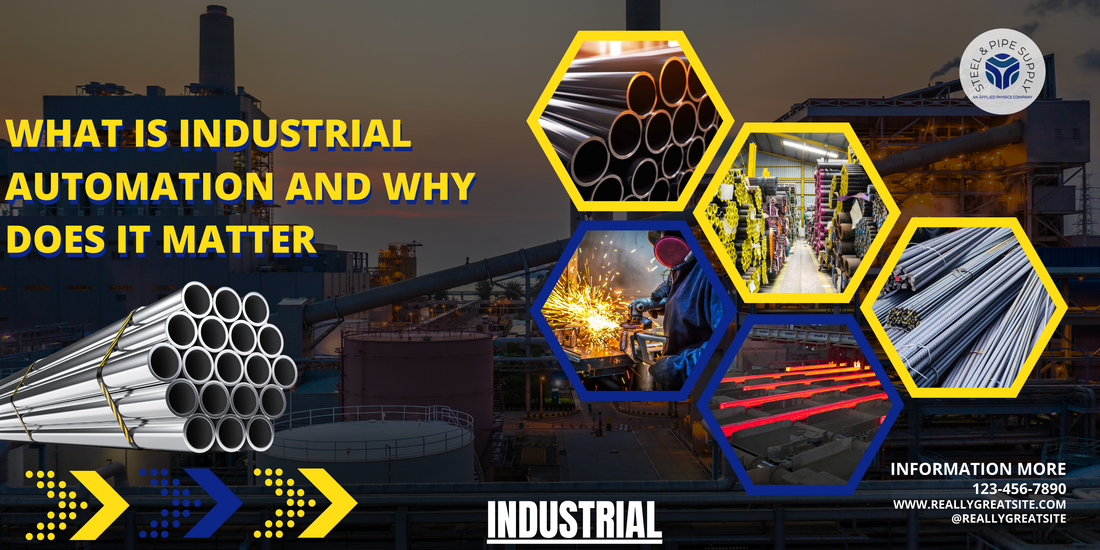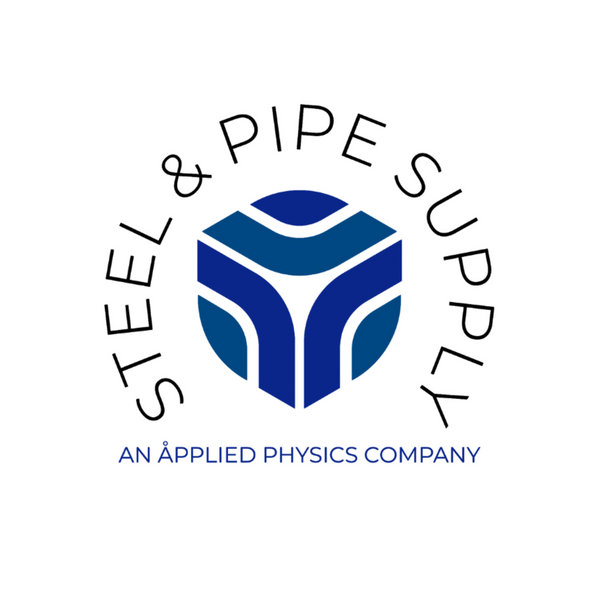
What Is Industrial Automation and Why Does It Matter
Share
Introduction
Industrial automation involves the utilization of control systems, such as computers or robots, to manage various processes and machinery in industrial environments. This encompasses tasks including manufacturing, material handling, and quality control. The primary objective of industrial automation is to enhance efficiency, productivity, and safety in the workplace, which is a vital component of modern manufacturing and essential for businesses to maintain competitiveness in the global market.
Industrial automation plays a crucial role as it has the potential to transform the way goods and services are produced. By automating repetitive and hazardous tasks, businesses can improve overall productivity and reduce the risk of workplace accidents. Furthermore, industrial automation can lead to cost savings and enhanced product quality, ultimately benefiting both businesses and consumers.
As technology continues to evolve, the significance of industrial automation will only increase.
Key Takeaways
- Industrial automation refers to the use of control systems and technologies to handle different processes and machinery in an industrial setting.
- Industrial automation is important because it helps to improve efficiency, productivity, and safety in manufacturing processes.
- The advantages of industrial automation include reduced labor costs, improved product quality, and increased production speed.
- Industrial automation has a significant impact on manufacturing by streamlining processes, reducing errors, and enabling the production of complex products.
- The role of industrial automation in increasing efficiency is crucial as it allows for the optimization of production processes and the utilization of resources.
Understanding Industrial Automation
Key Components of Industrial Automation
One of the key components of industrial automation is the use of programmable logic controllers (PLCs). These devices are used to control machinery and processes in industrial settings.
The Functionality of PLCs
They can be programmed to perform a wide range of tasks, such as monitoring inputs from sensors, controlling outputs to actuators, and executing logic-based operations.
The Importance of PLCs in Modern Manufacturing
PLCs are essential for automating industrial processes and are a fundamental part of modern manufacturing.
The Importance of Industrial Automation
Industrial automation is important for several reasons. First and foremost, it can help businesses improve their overall productivity and efficiency. By automating repetitive tasks, businesses can reduce the time and resources required to complete these tasks, which can lead to cost savings and increased output.
Additionally, industrial automation can help businesses improve their product quality by reducing the risk of human error and variability in production processes. Another important aspect of industrial automation is its potential to improve workplace safety. By automating dangerous tasks, businesses can reduce the risk of workplace accidents and injuries.
This can lead to a safer and healthier work environment for employees, which is essential for maintaining a productive workforce. Overall, industrial automation is important for businesses looking to remain competitive in today's global market.
Advantages of Industrial Automation
| Industrial Automation Metrics | Description |
|---|---|
| Increased Productivity | Industrial automation can lead to higher productivity levels by streamlining processes and reducing human error. |
| Cost Savings | Implementing automation can result in cost savings through reduced labor costs and improved efficiency. |
| Improved Safety | Automation can help create a safer work environment by taking over dangerous or repetitive tasks. |
| Data Collection and Analysis | Automation allows for the collection and analysis of data, leading to better decision-making and process optimization. |
| Flexibility | Industrial automation systems can be programmed to adapt to changing production needs and requirements. |
There are several advantages to implementing industrial automation in a business setting. One of the main advantages is increased productivity. By automating repetitive tasks, businesses can reduce the time and resources required to complete these tasks, which can lead to increased output and overall productivity.
Additionally, industrial automation can help businesses improve their product quality by reducing the risk of human error and variability in production processes. Another advantage of industrial automation is cost savings. By automating tasks that would otherwise require human intervention, businesses can reduce labor costs and improve their overall efficiency.
This can lead to significant cost savings over time, which can ultimately benefit both businesses and consumers. Additionally, industrial automation can help businesses remain competitive in today's global market by improving their overall productivity and efficiency.
Impact of Industrial Automation on Manufacturing
Industrial automation has had a significant impact on the manufacturing industry. By automating repetitive tasks and streamlining production processes, businesses can improve their overall productivity and efficiency. This has led to increased output and cost savings for many businesses in the manufacturing sector.
Additionally, industrial automation has helped improve product quality by reducing the risk of human error and variability in production processes. Another impact of industrial automation on manufacturing is its potential to create new job opportunities. While some jobs may be replaced by automation, new jobs will also be created to support and maintain these automated systems.
This can lead to new opportunities for skilled workers in the manufacturing industry. Overall, industrial automation has had a positive impact on manufacturing by improving productivity, efficiency, and product quality.
Role of Industrial Automation in Increasing Efficiency
Improved Product Quality
Industrial automation also plays a crucial role in improving product quality by minimizing the risk of human error and variability in production processes. This results in higher-quality products and increased customer satisfaction.
Reduced Waste and Improved Resource Utilization
Additionally, industrial automation helps reduce waste and improve resource utilization. By automating processes and machinery, businesses can optimize their use of materials and resources, leading to cost savings and improved efficiency.
Enhanced Workplace Efficiency
In summary, industrial automation is critical in increasing efficiency in the workplace by streamlining production processes and improving resource utilization. By adopting industrial automation, businesses can reap the benefits of increased productivity, improved product quality, and reduced waste, ultimately leading to enhanced workplace efficiency.
Future Trends in Industrial Automation
The future of industrial automation looks promising as technology continues to advance at a rapid pace. One future trend in industrial automation is the use of artificial intelligence (AI) and machine learning to optimize production processes. These technologies have the potential to revolutionize the way businesses automate their processes by enabling machines to learn from data and make decisions on their own.
Another future trend in industrial automation is the use of collaborative robots, or cobots, in the workplace. These robots are designed to work alongside humans in a collaborative manner, which can lead to improved productivity and efficiency in the workplace. Additionally, advancements in sensor technology and connectivity are expected to play a significant role in the future of industrial automation by enabling machines to communicate with each other and make real-time decisions.
Challenges and Considerations in Implementing Industrial Automation
While there are many benefits to implementing industrial automation, there are also several challenges and considerations that businesses must take into account. One challenge is the initial cost of implementing automated systems, which can be significant for many businesses. Additionally, businesses must consider the potential impact on their workforce and ensure that they have the necessary skills and training to support these automated systems.
Another consideration in implementing industrial automation is the potential for cybersecurity threats. As more systems become connected through the Internet of Things (IoT), businesses must ensure that their automated systems are secure from cyber attacks. Additionally, businesses must consider the potential impact on their supply chain and ensure that their automated systems are compatible with their existing infrastructure.
Conclusion
Industrial automation is a crucial aspect of modern manufacturing that has the potential to revolutionize the way we produce goods and services. By automating repetitive tasks and streamlining production processes, businesses can improve their overall productivity, efficiency, and product quality. While there are challenges and considerations in implementing industrial automation, the benefits far outweigh the potential drawbacks.As technology continues to advance, the future of industrial automation looks promising with advancements in AI, machine learning, collaborative robots, sensor technology, and connectivity. Overall, industrial automation is essential for businesses looking to remain competitive in today's global market.

